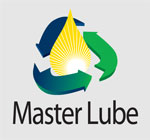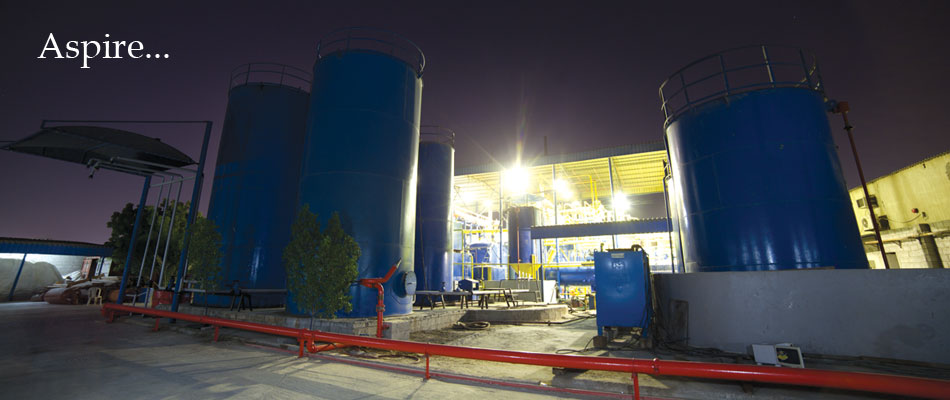
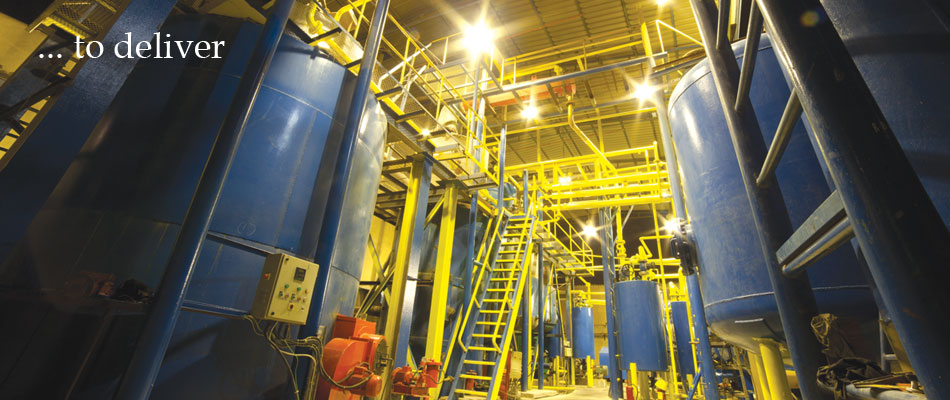
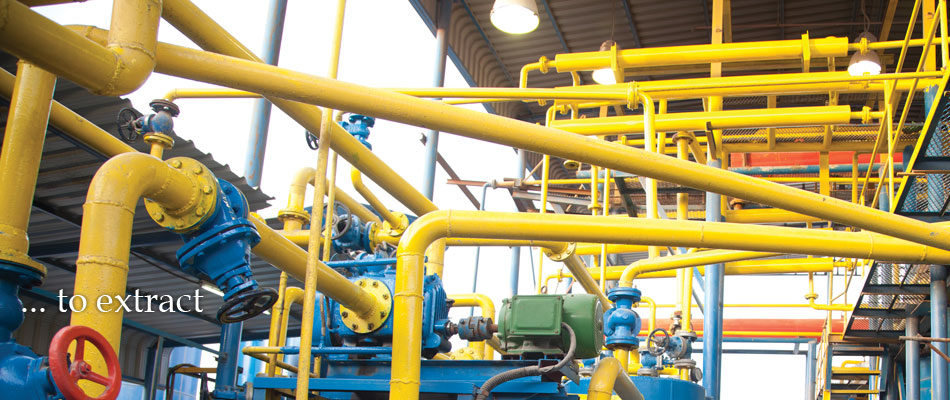
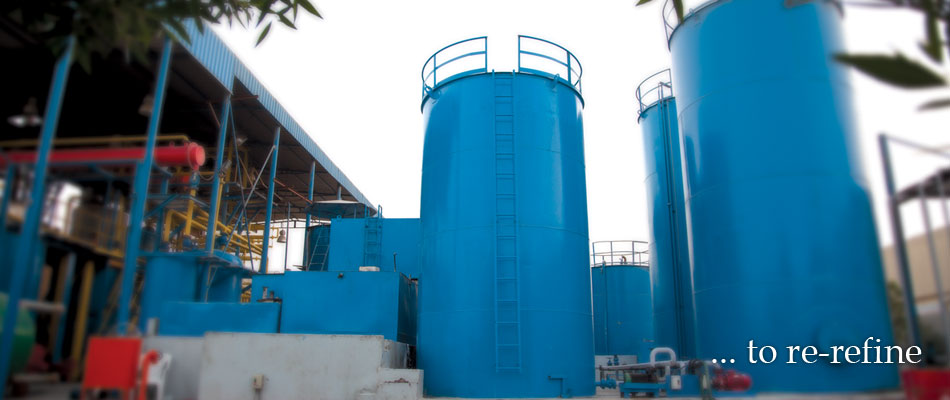
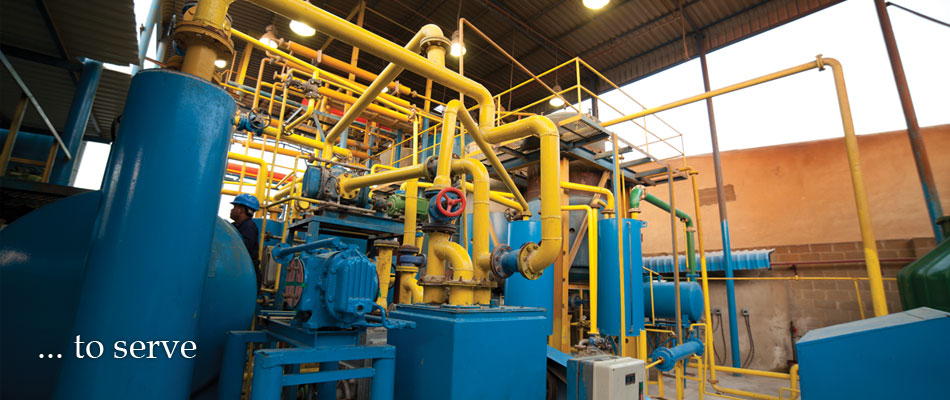
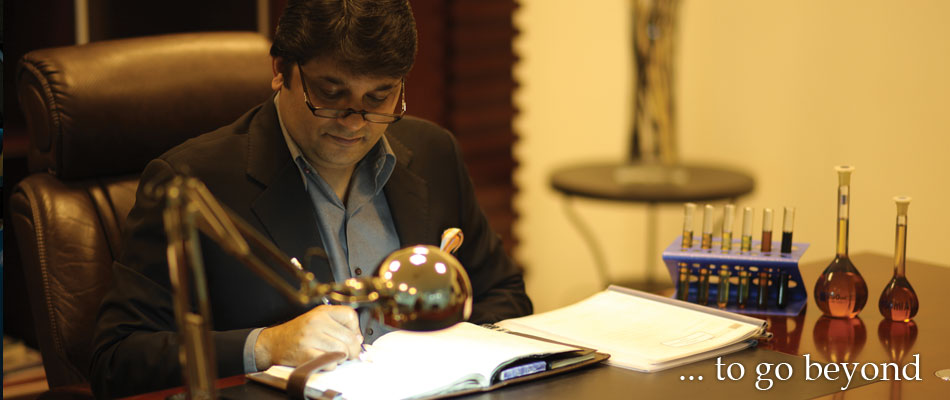
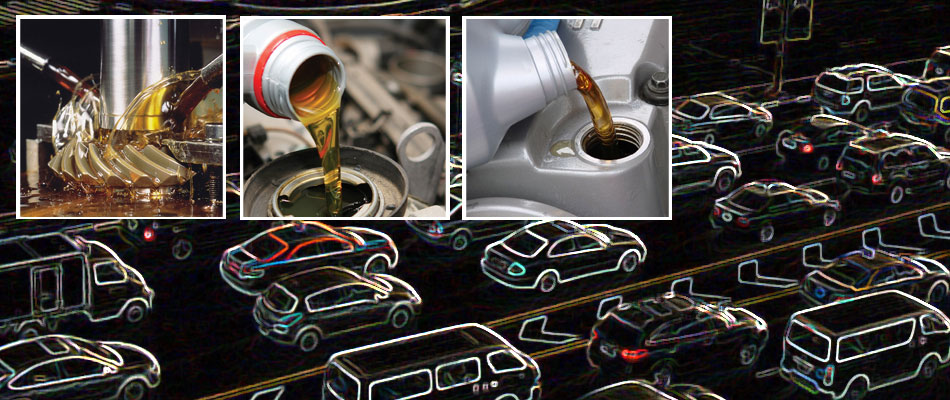
Today's oil recycling uses the same refining processes used for crude oil refining, including hydro-treating and distillation techniques to remove contaminants and used-up additives.
This process results in recycled base oils that can have the same quality and performance as base oils made from virgin crude as compared to the past when used oil was recycled through acid-clay treatment that removed some contaminants.
Master Lube is designed to re-generate used oil into Base oil which is the major component in all types of lubricating oils as well as premium lubricants.
The plant employs the latest technology in used oil regeneration and operates 24/7 throughout the year, thereby contributing towards keeping the environment green and clean.


Dehydration
The used oil is heated up to 140°C and then distilled in a vacuum column where the water and light hydrocarbons are separated.

Gas-Oil Stripping
The dehydrated oil is then fed continuously into a vacuum distillation plant for fractionation. Lighter oils boil off first and are streamed off, followed by the lubricating oil itself. Other heavier components do not boil in this section and are collected as a residual product.

Lube Oil distillation, Condensation & Finishing
A liquid extraction process then removes any aromatic components from the oil, followed by polishing and filtration processes. By the end of this stage, the end product meets Virgin Basel Groups I.

Additive Blending & Lubricant Filling
At this stage the base oil is blended with additives per API standards and SAE Protocols so as to produce the desired finished lubricants followed by filling in plastic containers and drums.

Finished Product Testing
All finished products go to a separate stability quality control unit where they are placed through stability protocols and tested according to international regimes & guidelines so as to ensure consistent quality to our customers and consumers.
